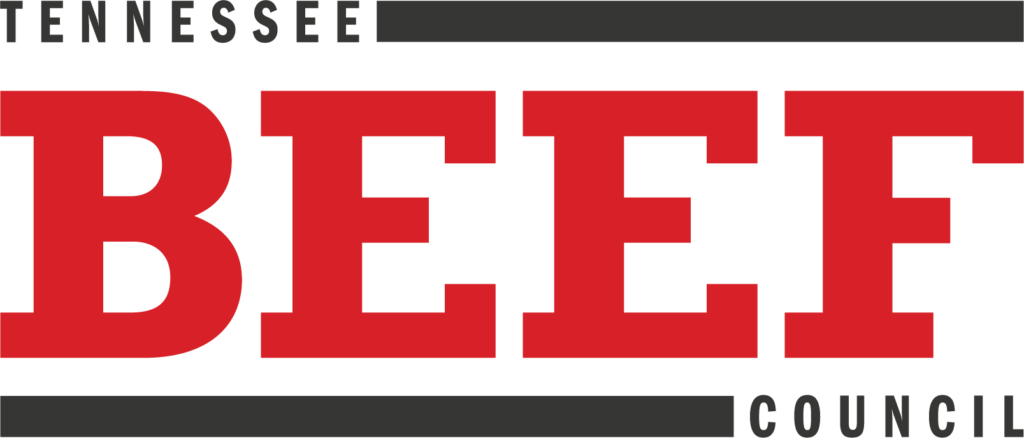Beef cattle management and genetics both affect the potential value of the beef animal. Proper nutrition and health management will allow the beef animal to reach its genetic potential. Feeding programs can affect the quality and quantity traits of the carcass and thus the value of the carcass. Beef Quality Assurance (BQA) programs help reduce carcass trim losses, also helping producers maximize value. Genetic selection, use of carcass Expected Progeny Differences (EPDs), is a powerful tool that beef producers have to improve the yield and quality grades of the cattle they produce. The information found in publications, guides, and programs is provided for the over-all finished beef product.

The Tennessee Beef Industry Council, made up of beef producers, manage the Beef Checkoff and Beef Promotion programs. The Beef Checkoff and Promotion programs are designed to communicate accurate beef information through public relations and advertising, share beef’s nutritional benefits with consumers and the health community, and work with grocers and restaurants to increase beef sales and product knowledge. Checkoff and Promotion dollars, by law, cannot be used to influence legislation.
Information and Resources
![]() How to Finish Cattle in Tennessee
How to Finish Cattle in Tennessee
The finishing phase is the final stage in the beef production process, where cattle are brought to optimal market weight and quality. Proper finishing not only ensures the best returns for producers but also contributes to overall industry sustainability and consumer satisfaction. This publication aims to provide insights into the essential aspects of finishing beef cattle to help producers maximize profits and produce high-quality beef.
![]() General Production Considerations for Grain and Grass Finished Cattle in Tennessee
General Production Considerations for Grain and Grass Finished Cattle in Tennessee
There are many ways to feed finishing cattle; one could use only forages or a combination of grain and grain by-products with a source of forage, in varying proportions, depending on the goal. The objective of this publication is to provide guidance on how to select a finishing system for cattle that best matches the unique aspects of your operation and how to achieve finished cattle with each method.
![]() On-Farm Finishing for Beef Cattle
On-Farm Finishing for Beef Cattle
Tennessee cattle producers are often interested in feeding a few head of cattle for personal consumption or marketing directly to the public. A simple feeding program consisting of a high-energy feed, such as corn, and a high-protein supplement can accomplish this. The goal of finishing beef on-farm is to produce a carcass with palatable, tender cuts and adequate yield.
![]() How Much Meat to Expect from a Beef Carcass
How Much Meat to Expect from a Beef Carcass
This document provides information to assist in the understanding of how much meat to expect from a beef carcass. The information provided here should be helpful to consumers who purchase a live animal for freezer beef and to cattle producers involved in direct and retail meat marketing.
![]() Listing of USDA Livestock Slaughter Facilities in Tennessee
Listing of USDA Livestock Slaughter Facilities in Tennessee
Twelve of the plants may be “possibilities” for farmers who want to have livestock slaughtered and processed under USDA inspection in order to market their meat products.
![]() General Overview of the History, Regulations and Inspection Information for Direct Meat Marketing in Tennessee
General Overview of the History, Regulations and Inspection Information for Direct Meat Marketing in Tennessee
This publication is intended to provide an overview of the history of meat inspection regulations and clarification of harvesting and processing options for meat that can be sold in Tennessee. Information about custom-exempt and on farm harvesting and processing is also mentioned.
![]() Understanding Yield Grades and Quality Grades for Value-Added Beef Producers and Marketers
Understanding Yield Grades and Quality Grades for Value-Added Beef Producers and Marketers
Important to the understanding and application of yield and quality grades is the definition of beef quality, cutability and undesirable carcass traits. This publication is intended to provide definitions and explanations of these important terms for cattle producers and entrepreneurs that are interested in direct marketing beef.
![]() Basic Regulatory Considerations for Retail and Non-Retail Meat Sales in Tennessee
Basic Regulatory Considerations for Retail and Non-Retail Meat Sales in Tennessee
The process of determining the regulatory issues for direct marketing meat has been complicated. We have found that while some basic guidance does exist, so do many exceptions. We also have found that various interpretations of regulations exist and miscommunications also occur. Details in verbal communications are often missed, overlooked or overemphasized, which may contribute to the appearance of different answers from different regulators.